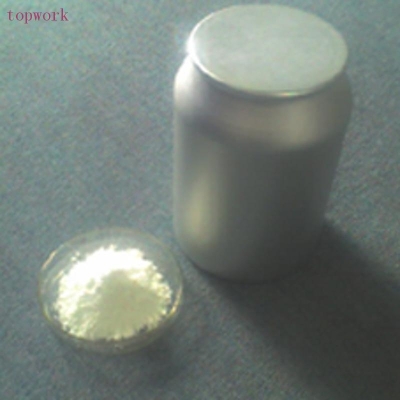-
Categories
-
Pharmaceutical Intermediates
-
Active Pharmaceutical Ingredients
-
Food Additives
- Industrial Coatings
- Agrochemicals
- Dyes and Pigments
- Surfactant
- Flavors and Fragrances
- Chemical Reagents
- Catalyst and Auxiliary
- Natural Products
- Inorganic Chemistry
-
Organic Chemistry
-
Biochemical Engineering
- Analytical Chemistry
-
Cosmetic Ingredient
- Water Treatment Chemical
-
Pharmaceutical Intermediates
Promotion
ECHEMI Mall
Wholesale
Weekly Price
Exhibition
News
-
Trade Service
On November 17, 2022, the official website of the US Food and Drug Administration (FDA) announced that the FDA has approved the first drug to delay the onset of type 1 diabetes, teplizumab-mzwv injection, for children and adults currently living with stage 2 type 1 diabetes ≥ 8 years old to delay the onset of stage 3 type 1 diabetes, the use is intravenous injection (≥ 30 minutes), once a day for 14 days
.
Chris Askew, Chief Executive of Diabetes UK, said: "The approval of teplizumab-mzwv in the US is a landmark mark that marks a sea change
in the treatment of type 1 diabetes.
For 100 years, the treatment of type 1 diabetes has relied on insulin, and today's decision means that for the first time, the root cause of this condition - the immune system attack - can be solved, and type 1 diabetes may be delayed for up to 2~3 years
.
What are the 3 stages of type 1 diabetes?
Regarding the staging of type 1 diabetes mellitus (T1DM), Professor Zhou Zhiguang once introduced in an exclusive interview that the occurrence and development of T1DM is a continuous disease spectrum state, and the American Diabetes Association (ADA), the American Endocrine Society (ACE) and the Juvenile Diabetes Foundation (JDRF) divide TIDM into stage 1, 2 and 3, and different stages show different characteristics:
➤TIDM-1 stage: the patient has normal blood glucose but is positive
for two or more islet autoantibodies.
Studies have shown that children who are genetically at risk and reach stage TIDM-1 have a 5- and 10-year risk of developing dominant diabetes of 44% and 70%, respectively, and a lifetime risk of 100%.
➤TIDM-2: Patients are positive for two or more islet autoantibodies with impaired glucose tolerance or abnormal blood glucose
.
Studies have shown that the risk of developing clinical overt diabetes within 5 years of T1DM-2 is 75%, and the lifetime risk is 100%.
➤TIDM-3 stage: patients have typical clinical signs and symptoms of diabetes, such as "three more and one less" symptoms and diabetic ketoacidosis, etc.
, and need to rely on insulin therapy
.
The median onset of teplizumab-mzwv delayed stage 3 T1DM was approximately 2 years
teplizumab-mzwv is an anti-human CD3 recombinant antibody that binds to certain immune system cells, inactivates related immune cells, and increases the proportion of cells that help regulate the immune response, delaying the progression of stage 2 T1DM patients to stage 3 T1DM.
In a randomized, double-blind, event-driven, placebo-controlled trial, investigators evaluated
the safety and efficacy of teplizumab-mzwv in 76 patients with stage 2 T1DM.
Patients were randomized to receive either teplizumab-mzwv or placebo once a day by intravenous infusion for 14 days
.
The primary measure of efficacy was the time
from randomization to diagnosis of stage 3 T1DM.
The trial results showed that at a median follow-up of 51 months, 45% of the 44 patients treated with teplizumab-mzwv were later diagnosed with stage 3 T1DM, compared with 72%
of the 32 patients treated with placebo.
The median time from randomization to confirmed stage 3 T1DM was 50 months in patients treated with teplizumab-mzwv, compared with 25 months in the placebo group, and significantly delayed disease progression
in the drug group.
Safety of Teplizumab-MZWV
The most common adverse effects of teplizumab-MZWV (>10%) are lymphopenia, rash, leukopenia, and headache
.
Do a good job of relevant prevention and pay attention to other drug warnings:
➤ Cytokine release syndrome;
➤ Severe infections;
➤ Lymphopenia;
➤ Allergic reactions;
➤ Vaccination-related matters;
John Sharets, M.
D.
, director of the Division of Diabetes, Lipid Disorders and Obesity, USAA's Center for Drug Evaluation and Research, said: "The drug may delay the clinical diagnosis of type 1 diabetes and hopefully keep patients away from the disease
for months to years.
The approval of the regimen adds an important treatment option
for some high-risk patients.
”
Information source:
[1] style="white-space: normal;">[2] PAN Feng.
Islet autoantibodies are an important basis for the staging of type 1 diabetes——An interview with Professor Zhou Zhiguang, President of Xiangya Second Hospital Affiliated to Central South University[J].
China Medical Herald,2020,17(1):1-3.







